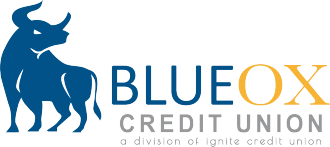savings accounts, money markets, and certificates: what’s the difference?

As interest rates continue to rise, the time to start maximizing your savings is more important than ever! However, with all the investment and saving opportunities available, how do you know which option will best fit your needs? Start your journey to smart saving today by learning all there's to know about savings accounts, money markets, and certificates!
pro tip – before you begin looking into your saving and investment options, take some time to write out your financial goals. This process will help you determine which account you’ll benefit the most from. For tips on how to set practical financial goals, check out our blog: how to save money
terms to remember
- Annual Percentage Yield (APY) - Like the Annual Percentage Rate (APR), APY is also referred to as the interest rate. However, the APY represents how much money you'll earn in a savings account or investment, while the APR is how much you'll pay on a loan or other line of credit.
- Fixed Rate – With a fixed rate, the APY on your account will stay the same throughout your term agreement - regardless of any economic changes.
- Variable Rate – With a variable rate, the APY on your account will change periodically throughout the term on your account. These adjustments depend on the economy and are usually impacted by the Federal Reserve.
- Deposit Requirement – This is the minimum amount of funds you’ll need to deposit into the account to open it.
- Term Length – This is the amount of time you agree to keep the account open. Standard term lengths are anywhere from 6 months to 30 months. Typically, the longer the term length, the higher the interest rate.
- New Money – You might see financial institutions advertise their savings accounts requiring you to deposit “new money.” This means you can’t use funds from an existing account at the financial institution to open a new one. For example, using money from your checking account to open a money market.
traditional savings accounts
Opening a traditional savings account is the most standard and straightforward way to save money at a financial institution. They’re often paired with a checking account, where you deposit the funds you plan on using daily. Any other money you don’t want to immediately spend could be allocated to your savings account.
Savings accounts are flexible and accessible. You can deposit, withdraw, and transfer your funds an unlimited number of times. Savings accounts also have the lowest deposit requirements and usually don’t have an annual fee to keep the account open.
should you open a savings account?
The following are some key factors to consider before opening a savings account:
- You’re new to banking or establishing a savings plan for the first time.
- You want to avoid paying a high deposit requirement. A standard deposit requirement for a traditional savings account is usually less than $10.
- You’re saving for a short-term financial goal.
BlueOx savings accounts
- regular savings account – The regular savings account establishes your official membership with BlueOx Credit Union. It's the perfect way to start preparing for the future! With a $5 minimum balance and no monthly service charges, this basic account lets you save as little or as much as your budget allows.
- special savings account – Members may open special savings accounts for budgeting purposes or to save for special purchases such as a vacation, wedding, new vehicle, college education, and more.
youth banking – blue’s bright beginnings
Today’s youth are never too young to start learning good financial habits. That’s why BlueOx Credit Union offers a FREE youth banking program to help our youngest members, ages 0-18, get excited about saving and become successful money managers!
money market accounts
Money market accounts are federally insured savings accounts that also earn interest. They’re often described as a mix between a traditional savings account and a checking account. However, money market accounts are more limited in their accessibility than these accounts. For example, there's usually a set number of times you can withdraw or transfer your funds within a statement cycle.
The more you deposit into a money market account, the more interest you’ll earn. Because of this, money markets usually have a deposit requirement – typically $2,500 or higher. Once this requirement is met, you can continue to deposit money into your account for as long as it’s open.
should you open a money market account?
Interested in opening a money market account? It could be the perfect option if you answer yes to any of the following questions:
- Do you have a higher amount of funds available to save?
- Do you want the option to add funds throughout the term and withdraw funds without a penalty?
- Are you looking for a higher interest rate than a traditional savings account would offer?
- Are you saving for a long-term financial goal?
BlueOx money market accounts
Our money market accounts are the ideal savings accounts for members who want to maximize the return on their investment. They offer competitive dividends, earned daily and paid monthly. As well as no annual fees and higher dividends on balances of $2,500 or more.
certificates
Also known as certificates of deposit (CDs) - certificates earn interest like money market accounts. They also have a deposit requirement - usually between $500-$10,000. However, this is where the similarities end.
For example, certificates are “term-based accounts.” Your initial deposit will remain in the account until you’ve completed the term agreement – typically between 3 months to 5 years. If you withdraw your funds before the term ends, you’ll likely be charged a fee. You also cannot typically deposit money into your certificate once it has been opened.
These factors make certificates less flexible than the other savings options – although they usually offer significantly higher interest rates and a better return on your investment. Certificate rates are also typically fixed, while money market accounts are variable and subject to change over time.
Want to learn even more about certificates of deposit? Check out our blog: how do certificates of deposit (CDs) work?
should you open a certificate?
Does a certificate sound like the best investment option for you? It could be if you agree with the following:
- You want to keep the initial interest rate being offered. With variable-rate accounts, the APY could increase; however, the rate could also decrease. You won’t have to take this chance with a fixed-rate CD.
- You want to minimize your risk - CDs are considered one of the safest forms of investing.
- You don’t need access to your funds for a longer period of time. Remember, most financial institutions will charge you a fee if you withdraw your funds before the term has ended.
BlueOx certificates of deposit
Our certificate accounts offer competitive dividend rates and terms ranging from three months all the way up to five years. Youth certificates are also available for ages birth to 17 to help our younger members get a jump start on saving! Additionally, certificate funds are available to use as collateral for a certificate-secured loan at a low interest rate.
- 5-month certificate special - For a limited time, earn 5.00% APY* on a 5-month Certificate of Deposit at BlueOx Credit Union! Whether you're saving for something special or simply looking to grow your money a bit faster, this is a great opportunity to get started.
what’s next?
Ready to start saving? Stop by any BlueOx Credit Union branch or log in to your Online Banking to get started! For more information, contact us at (800) 648-8035. Our Member Service Advisors are available to answer any questions and help you find the perfect savings option for your needs!
*APY = Annual Percentage Yield. APY is accurate as of August 11, 2025. Fees may reduce earnings. To receive the promotional rate of 5.00% APY, the 5-month CD must be opened with a minimum of $500. Rates are subject to change without prior notification. Penalties will apply for withdrawal before the maturity date of the CD. Dividends are posted monthly. Limited-time offer. Federally insured by the NCUA.
« Return to "BlueOx Blog"
